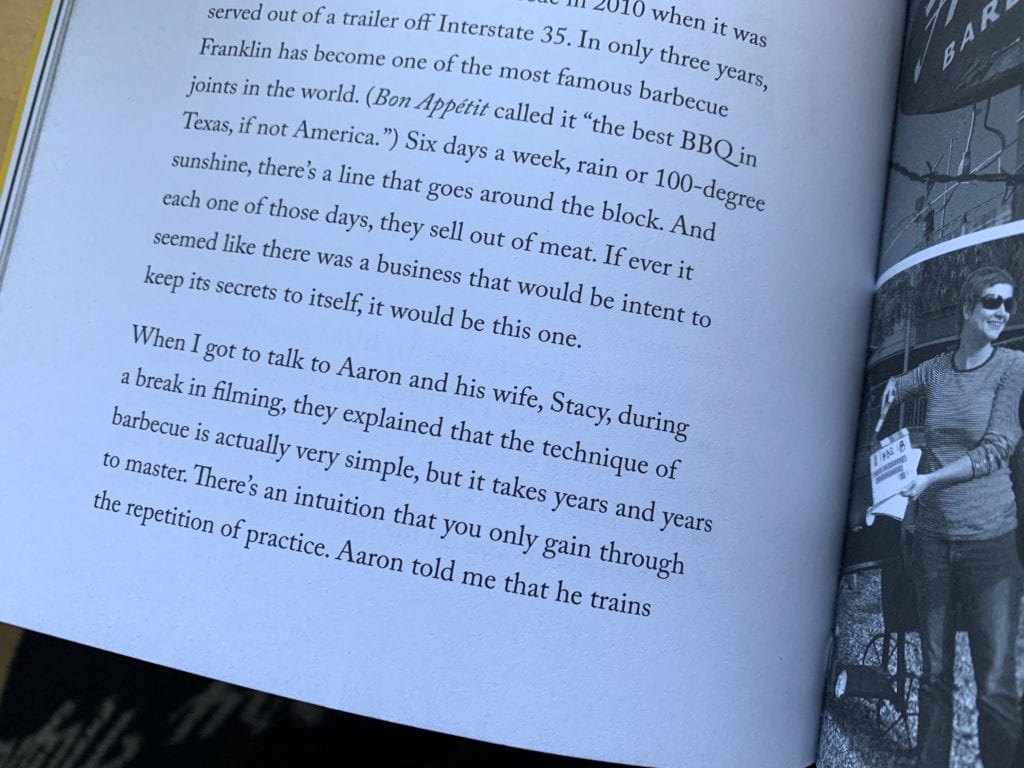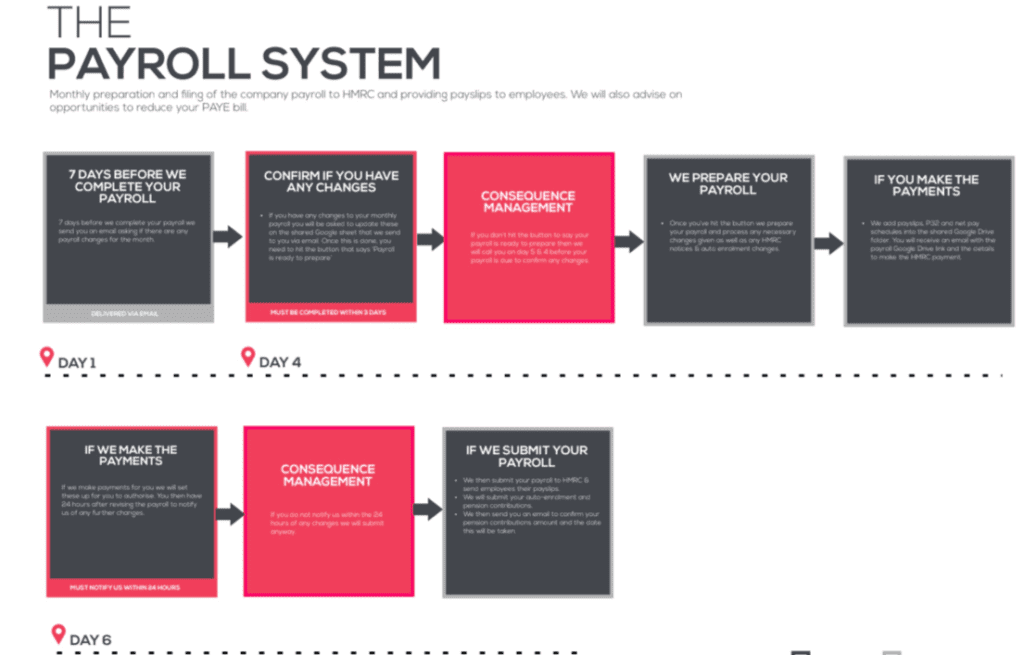 When it comes to sharing content, and giving away free stuff: what if you put yourself out of business by giving all of this away?
When it comes to sharing content, and giving away free stuff: what if you put yourself out of business by giving all of this away?
What if your prospects read it and consume it and never need you? How can this possibly lead to new business?
This question I got recently from an Accelerator member was so good, and so detailed, I’d like you to read the whole thing all the way through first.
“I am hoping you can help me understand something that has puzzled me about the entire concept of content marketing. I just watched the latest Accelerator video about Content, and just yesterday I finished reading They Ask, You Answer. (I guess I can put that on the challenges and accomplishments board!)
The puzzling thing is that I feel I’m giving away free information that I can no longer charge a customer for.
In They Ask, You Answer, the author was teaching folks about pools. However, he was still able to make money, because his core service is the supply and installation of pools. No amount of information he publishes will suddenly give a customer the skills it takes to install a pool.
However, in our line of work, there seems to be a real risk of publishing information that can indeed educate and empower someone to the point that they no longer need our help and expertise. I could write a step-by-step guide about when a person should incorporate their business. I could even create an online calculator that crunches the numbers for them. After doing this, I’ve put myself out of business for this service.
I’ve given numerous seminars for niche groups. They were well-attended and well received. I stood up there and gave valuable information that was not a sales pitch. Essentially, I was doing what They Ask, You Answer talks about, without even knowing it. The problem? Very little came of it in terms of new work. I can’t help but feel that I gave away too much information and rendered myself useless.
So, is there a limit to the type of content that accountants should produce? I suppose I could address the Big 5 that are listed in the book (and that you touched on in Session 1). Beyond this, how much more should I publish? Maybe I’m thinking too small here, but I can only think of what our firm currently does for clients. Maybe other firms don’t worry about this because they’re doing such high-level work that there’s no way they could publish their way out of business. Can you help me understand all of this?”
The answer is:
Give away information
And
Charge for implementation.
Every person and company and freelancer these days is sharing information.
Information is free. It’s easy. You can search for “how to”… do anything on YouTube, or on Google. You can search how to drill a hole, how to use a sewing machine, how to do your own bookkeeping, how to use Xero, whatever.
It seems like some companies have this a bit easier. As the question asker rightly says, who in the wide world is actually going to go away and build their own fibre glass pool??
But the principle is the same. People can access information anywhere: it’s implementation they pay for.
And when it comes to accounting services, yes, there are some things they can and will do themselves, at least at first.
The startups, the freelancers, those who value money over time at this point in their business life. Those who don’t yet understand how it benefits them to pay fees to an accountant for something they COULD, technically, do themselves.
They’ll try it, and some will do okay.
Some will fail.
Some will know they’ve failed and others won’t.
Some will give up and ask you for help (after a few days, or a few years).
We have this happen at PF all the time. We get firms who simply consume our free content for years. They watch videos and read blogs and create a They Ask You Answer list and create content and record videos and it seems like they don’t need us…until they do.
And when they do, they’re far more likely to come to a agency that gave them all this expert information and proved it was right, and with whom they have a relationship.
You’re giving away information, and (either straight away or later) people will pay for implementation.
Austin Kleon talks about this in his book “Show your work”. (I highly recommend ordering it – very quick, very easy read, and chapter 6 “share your trade secrets” is particularly relevant.

Your job as you share this information is to highlight at every point – from your extensive experience – the dangers this journey is fraught with, if they do it on their own.
Austin explains how when the barbeque expert cuts into a brisket, he can tell who did the smoking. That’s the sort of thing you’re doing as you share all your trade secrets. James Ashford calls it “consequence management”.
“Yes, you can do your payroll yourself and here’s the step by step. Oh – but if at this point this happens, here’s what will then happen. If at this point you forget to do this, here’s what that will cost you. If at this point….” etc.

We’re all still tempted to do a talk, and expect instant sales. Or share some content, and expect a sale from that. Sometimes it happens that way. More often than not, people take it in, they think about it, they try it, they reflect on it….and they come when they’re ready. So the more content you share, the more you’re building up so that once the drip feed begins, it never ends.
You’re building a relationship.
Instead, publish everything.
Give everything away in terms of information.
Don’t ever give away implementation – the second someone asks for specific help in their situation, or applying that information to their business, you charge them. Charge them for a review of their accounts, or a list of the changes they need to implement, or the cash flow forecast, or whatever it is. (If they’re a client, be clear on what’s included and what isn’t, in their monthly fee.)
Some people will just take and take and take information and never hire you. Fine. They would be the troublesome clients, the ones you’d have to get rid of later anyway.
But the right people will take information…and then hire you. When they’re ready.
Here’s an example of some free stuff you can give away which will only draw people to you more:
1. Tell them how to do something, step by step.
Ashton McGill did an incredible series on the Business Model Canvas.
This is a proprietary thing they use in their firm. It’s a structure, a literal canvas, and they work through it with their clients. But they’ve given away the entire process in a series of incredibly detailed blog posts.
You could read these, download and print out your own, and do it all without help. Or, you could read it and think, “I really could use some help with this – and what if I’m doing it wrong? I’ll get in touch.”
Here’s the Business Model Canvas blog post series
2. Record training videos
Marion Thompson has recorded hundreds and hundreds of specific “how to use Xero” videos for her brand XU Academy. They’re all free on YouTube.
Yes, of course they could use these videos to learn it all themselves and never get in touch…or they could buy paid courses from Marion, or get specialist help.
Watch XU Academy how to use Xero videos
3. Send them to other people’s resources
I have to practice this one personally, myself, on a daily basis. When someone tells me they’re thinking about a new name for their accountancy firm, and need some help, and do they need to sign up for a branding workshop with PF, of course I tell them that’s a great place to start. I also tell them to read Hello, My Name is Awesome, which will help teach them about how to name (or rename) a business.
Now, I could hold that back. I could tell myself, what if they read that and don’t need me?
But the truth is, even if they read it and come up with a great name, they’ll still need help with branding – style, tone of voice, imagery, brand identity, logo design, logo refresh….and they’ll still need a branding workshop for that. Why not help them learn as much as they can before they come to work with us?
We do the same with the book They Ask, You Answer. It’s the book i almost wish I had written for accountants…but I’m glad I didn’t, because now I can say “Go buy it, no question, this is THE book for accountants who want to get inspired with marketing”. It would be really arrogant for me to say that about a book I’ve written!
And the accountants who read and embrace what’s in that book, when they do come to us for specific help in their own marketing…they’re truly ready. They get it. They’re ready to be in partnership, and we don’t have to re-train them.
Your content needs to be helpful and real
Oh – by the way – if you create this free stuff as a “lead magnet” purely to get more business, it will become obvious that you’re simply creating something to make sales.
You have to create something that is genuinely helpful. Something that if used perfectly could actually bring you no business at all.
Amazingly, when you do that, the prospective buyer feels a release of sales tension and is much more likely to buy from you than if you said “here’s steps one and two, but for steps three to ten, you must buy this”. When you hold things back, it adds sales pressure and causes the buyer to delay.
So, give away information.
Be ready to charge for implementation, when they are ready.
And enjoy helping people!!

